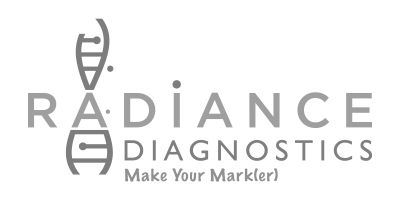Description
What is a PSA test?
Prostate-specific antigen (PSA) is a protein produced by prostate cells.
The PSA test is done to help screen for and follow prostate cancer in men.
How is the Test Performed?
A blood sample is needed.
How to Prepare for the Test?
Make sure your healthcare provider knows all the medicines you are taking. Some drugs cause your PSA level to be falsely low.
In most cases, no other special steps are needed to prepare for this test. You should not have a PSA test soon after having a urinary tract infection or undergoing a procedure or surgery involving the urinary system. Ask your provider how long you should wait.
How will the Test Feel?
You may feel slight pain or a prick when the needle is inserted. Afterward, there may be some throbbing or a slight bruise. These soon go away.
Why is the Test Performed?
Reasons for a PSA test:
- This test may be done to screen for prostate cancer.
- It is also used to track people after prostate cancer treatment to see if the cancer has come back.
- If a provider feels the prostate gland is not normal during a physical exam.
MORE ABOUT SCREENING FOR PROSTATE CANCER
Measuring the PSA level can increase the chance of finding prostate cancer when it is very early. But there is debate over the value of the PSA test for detecting prostate cancer. No single answer fits all men.
For some men 55 through 69 years old, screening may help reduce the chance of death from prostate cancer. However, for many men, screening and treatment could potentially be more harmful than beneficial.
Before having the test, talk to your provider about the pros and cons of having a PSA test. Ask about:
- Whether screening decreases your chance of dying from prostate cancer
- Whether there is any harm from prostate cancer screening, such as side-effects from testing or overtreatment of cancer when discovered.
Some men younger than age 55 have a higher chance of developing prostate cancer and should talk with their provider about PSA screening if they:
- Have a family history of prostate cancer (especially a brother or father)
- Are African American
Normal Results
The PSA test result cannot diagnose prostate cancer. Only a prostate biopsy can diagnose this cancer.
Your provider will look at your PSA result and consider your age, ethnicity, medicines you are taking, and other things to decide whether your PSA is normal or whether you need more tests.
A normal PSA level is considered to be up to 4.0 nanograms per milliliter (ng/mL) of blood, but this varies by age:
- For men in their 50s or younger, a PSA level should be below 2.5 ng/mL in most cases.
- Older men often have slightly higher PSA levels than younger men.
What Abnormal Results Mean
A high PSA level has been linked to an increased chance of having prostate cancer.
PSA testing is an important tool for detecting prostate cancer, but it is not foolproof. Other conditions can cause a rise in PSA, including:
- A larger prostate
- Prostate infection (prostatitis)
- Urinary tract infection
- Recent tests on your bladder (cystoscopy) or prostate (biopsy)
- Catheter tube recently placed into your bladder to drain urine
- Recent intercourse or ejaculation
- Recent colonoscopy
Your provider will consider the following things when deciding on the next step:
- Your age
- If you had a PSA test in the past and how much and how fast your PSA level has changed
- If a prostate lump was found during your exam
- Other symptoms you may have
- Other risk factors for prostate cancer, such as ethnicity and family history
Men at high risk may need to have more tests. These may include:
- Repeating your PSA test, most often sometime within 3 months. You may receive treatment for a prostate infection first.
- A prostate biopsy will be done if the first PSA level is high, or if the level keeps rising when the PSA is measured again.
- A follow-up test is called a free PSA (fPSA). This measures the percentage of PSA in your blood that is not bound to other proteins. The lower the level of this test, the more likely it is that prostate cancer is present.
Other tests may also be done. The exact role of these tests in deciding on treatment is unclear.
- A urine test called PCA-3.
- An MRI of the prostate may help identify cancer in an area of the prostate that is hard to reach during a biopsy.
If you have been treated for prostate cancer, the PSA level can show if treatment is working or if the cancer has come back. Often, PSA level rises before there are any symptoms. This may happen months or years beforehand.
Risks
There is little risk involved with having your blood taken. Veins and arteries vary in size from one person to another, and from one side of the body to the other. Taking blood from some people may be more difficult than from others.
Other risks associated with having blood drawn are slight, but may include:
- Excessive bleeding
- Multiple punctures to locate veins
- Fainting or feeling lightheaded
- Hematoma (blood accumulating under the skin)
- Infection (a slight risk any time the skin is broken)
Alternative Names
Prostate-specific antigen; Prostate cancer screening test; PSA
Source: MedlinePlus, National Library of Medicine
MedlinePlus brings together authoritative health information from the National Library of Medicine (NLM), the National Institutes of Health (NIH), and other government agencies and health-related organizations.


